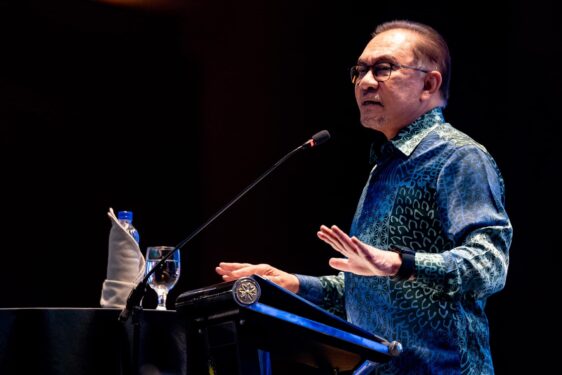
By Doreenn Leong
FORMER Transport Minister Anthony Loke’s “biggest regret” was being unable to provide a settlement to the families of Malaysia Airlines flight MH370 victims to conclude the compensation to the MH370 victims.
Yes, the tragedy took place six years ago but there is an urgent need to look at the unresolved matters within the industry.
New Transport Minister Datuk Seri Wee Ka Siong, who is the only member of MCA to hold a seat in Parliament after the Malaysian general election in May 2018, has to quickly devise a plan to help the local aviation industry from falling into the abyss.
Will Wee be able to tackle the various problems plaguing the transport industry? What will be his priorities?
“Apparently he has a PhD in transport planning so it would appear he is well equipped for the job. Let’s see what he says in his first press conference… Financially weak airlines are on the brink of collapse around the world,” says Endau Analytics founder Shukor Yusof.
As it is, some US$70 bil (RM296 bil) has been wiped out of the world’s top 20 listed airlines in terms of market capitalisation due to the rapid spread of Covid-19, resulting in falling ticket demand.
Local carriers are already undertaking drastic measures to cut cost by slashing salaries and other staff perks. FocusM reported that AirAsia has resorted to taking a pay cut and do away with big social events for the year.
It was also reported that Malindo Airways Sdn Bhd had decided to slash 50% of staff’s basic pay across the board while national carrier Malaysia Airlines Bhd (MAB) implemented a 10% reduction in salaries for its senior management beginning this month.
What will happen to MAB, which is in dire need of a turnaround? The national carrier’s parent Khazanah Nasional Bhd has shortlisted four proposals, which would hopefully turn around the beleaguered national carrier.
FocusM reported earlier that there were four bidders for MAB: AirAsia Group Bhd (AAGB), Japan Airlines Co Ltd (JAL), Air France-KLM SA and Malindo. Of the four, Khazanah was considering either AAGB or JAL.
While the fate of MAB will not be in Wee’s hands, the outcome will have an impact on the sector which is under his ministry.
It is imperative that the new government under Perikatan Nasional does not affect Khazanah’s decision-making process.
Malaysia Airports’ RAB
Another long-outstanding issue is the decision on the regulated asset base (RAB) framework for airport operator Malaysia Airports Holdings Bhd (MAHB).
RAB is the funding mechanism for MAHB to spend on local airports development within the regulated period, allowing the airport operator to recoup its capital expenditure (capex) for airports development or upgrades.
Under the proposed RAB framework, a rising user fee paid by MAHB to the government will be matched by a higher passenger service charge (PSC).
MAHB will also be able to recoup any capex spent and generate a return by setting the PSC, landing charges and aircraft parking charges to reflect the forecast capex.
The Malaysian Aviation Commission (Mavcom) had previously said the RAB would be implemented on Jan 1, 2020, but Loke had put a spanner in the works as he said his ministry was seeking alternatives besides the RAB framework for the future development of domestic airports.
Mavcom was supposed to present its concluding paper on the RAB framework on Feb 25 but had postponed the briefing following the week-long political turmoil.
Whatever the decision, MAHB can then move on. Not only is the airport operator affected by the slower passenger movements, it will also have to provide rebates on rental for premises at the airport as well as landing and parking charges as announced in the recent RM20 bil economic stimulus package.
As it is, the numbers are not looking good. Malaysia’s overall passenger movements in February this year fell by 23.4% to 6.2 million passengers from a year ago, as air travel was impacted by the Covid-19 outbreak, according to MAHB.
International and domestic sectors declined by 29.6% and 16.8% with 2.9 million and 3.3 million passenger movements respectively.
The decline in traffic performance seen in the last week of January 2020 continued and heightened in the month of February 2020 as expected in the wake of the coronavirus outbreak, it said.
Mavcom and CAAM merger
And what about the fate of Mavcom? Will the ministry put a stop to the merger between Mavcom and the Civil Aviation Authority of Malaysia (CAAM)?
Already, there are many calls for the government to reconsider the merger decision as it may not be the most effective way to address Malaysia’s air safety rating from Category 1 to Category 2.
Many industry experts believe the merger may not bode well for the aviation industry in Malaysia. For one, both have different roles and there may be little synergy to be derived from the exercise.
Mavcom acts as an independent economic regulator for the civil aviation industry in Malaysia while CAAM is the sole civil aviation technical regulator in Malaysia with the primary function to regulate the safety and security of civil aviation.
The government had on Dec 11 announced to dissolve Mavcom and transfer its functions to CAAM. The merger was aimed at empowering CAAM and strengthening its financial position to allow it to hire the best qualified technical personnel.
AirAsia’s ‘offset’
Let’s not forget about AAGB’s allegations of bribery by Airbus. What is the status of the investigations now that the Malaysian Anti-Corruption Commission (MACC) and Ministry of Transport are now under new leadership?
In February, FocusM reported that directors and/or employees of AAGB and its long-haul carrier AirAsia X Bhd (AAX) have been said to be recipients of a US$50 mil bribe from European planemaker Airbus SE, according to UK court documents sighted.
Tan Sri Tony Fernandes and Datuk Kamarudin Meranun both stepped down from their respective roles as group CEO and executive chairman for two months from Feb 3 to make way for investigations. They remain on the board as non-executive directors.
MACC said on Feb 1 that the agency was still waiting for documents from the UK Serious Fraud Office. AAGB and AAX also appointed BDO Governance Advisory Sdn Bhd as an independent expert to assist the non-executive independent board committee in reviewing the matter.
While such investigations may not directly involve the Ministry of Transport, it is important to ensure that the matter is not being swept under the carpet and instead let the public know the truth. – March 11, 2020










